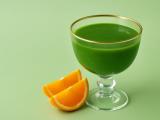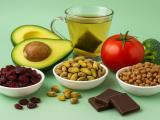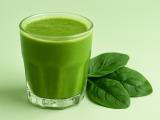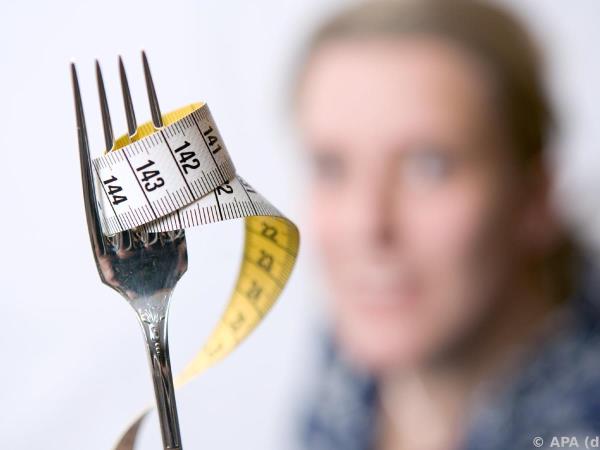What are empty calories and why should we take them seriously?
Simply put: empty calories are those that fill the stomach and burden the body, but don't provide the proper tools for the body to do anything useful. After consuming them, we become tired, lack energy, and often become irritable - like throwing paper instead of logs into a fireplace. It lights up, burns... and then goes out after a minute.
Science says that these are calories from foods that have almost no vitamins, minerals, or fiber - the ingredients our body truly needs to function. They are most commonly found in sweetened beverages, pastries, snacks, fast food, and similar items. Some of the most well-known culprits are carbonated drinks, chocolates, candies, chips, crackers, and of course - frozen fast food.
Even though a can of sweetened beverage contains around 140 calories, it doesn't have a single gram of fiber, no vitamins, and no beneficial fats. Meanwhile, a cup of cooked beans contains the same amount of energy, but it also brings 15 grams of fiber, iron, folic acid, and proteins.
What does science say?
A 2019 study by the American National Institutes of Health (NIH) showed that people who consume ultra-processed foods (another term for empty calories) eat an average of 500 more calories per day than those who eat unprocessed foods. In four weeks, this can result in almost 2 kilograms of additional body weight - all without feeling satiated.
The Body Seeks Nutrients, Not Calories
Our ancestors already understood this very well - they ate slowly, seasonally, and moderately. Porridge with milk in the morning, stew for lunch, and something light for dinner. There was no refined sugar, yet no one complained about lacking energy.
The problem with today's food is that it gives us a pseudo sense of fullness. The body consumes 500 calories in three minutes - but it doesn't receive the "key to the locked pantry" where nutrients are stored. So, the body starts searching for more. And what do we do? We open the pantry again - and grab another croissant.
Monosodium Glutamate - The Silent Taste Manipulator
Here we touch upon another interesting trick of modern food industry: flavor enhancers. The most well-known is monosodium glutamate, or MSG - a substance found in almost everything: instant soups, chips, Chinese food, even in some spice mixes. It's a compound that gives food a richer taste, tricking the brain into thinking you are eating something "rich". However, it's simply empty deception. MSG doesn't nourish you - it just convinces you that you wanted to eat more.
Chinese sages have long known that balance in the body comes from quality, not quantity. While MSG isn't harmful in small amounts, its main effect is to disrupt listening to the body's signals. And that is the essence of a healthy diet - knowing what the body needs and providing it.
Connection with Chronic Diseases
The World Health Organization (WHO) has been warning for over a decade about the direct link between consuming empty calories and the prevalence of obesity, type 2 diabetes, cardiovascular diseases, and even some types of cancer. The numbers are alarming:
- in Europe, over 60% of adults are overweight,
- over 420 million people worldwide have diabetes,
- every year, more than 17 million people die from cardiovascular diseases.
And a significant part of this is due to a diet high in calories but low in nutrients.
Why don't empty calories satisfy us?
Eating something doesn't necessarily mean we are nourished. The feeling of satiety depends not only on the quantity of food but primarily on its quality. For example, a piece of bread with butter gives us around 200 calories, but we'll be hungry again in an hour. On the other hand, a bowl of oatmeal with walnuts and strawberries has a similar caloric value but keeps us satisfied for hours. The difference lies in the fiber, proteins, and healthy fats - these are what stop hunger.
How to Avoid Them Gracefully?
You don't have to give up everything you love. According to conventional wisdom - "what's too much is not healthy". If you occasionally eat a piece of cake - no problem. But if every day starts with a chocolate breakfast, you snack on an energy bar in the car, and have pizza for dinner, then you're already trapped in empty calories.
Smart Tricks Known to Our Grandmothers:
- Always eat something before going shopping - a hungry person makes the most unnecessary purchases.
- Keep nuts handy - a handful of walnuts or almonds is better than chips.
- Cook for yourself - a pot of homemade soup will nourish both body and soul.
- Drink water - often we are thirsty but mistake it for hunger.
A Few Words About Emotional Hunger
Traditional medicine has long known that food is not just fuel - it's also comfort. But the difference between real hunger and emotional hunger is clear. If hunger strikes an hour after dinner and you find yourself raiding the fridge without much thought, it might be seeking comfort rather than food. In those moments, make yourself a cup of tea. Whether chamomile, lemon balm, or mint - it soothes the mind and nourishes the inner void differently than food.
Integrating the Wisdom of Ancestors and Modern Research
By combining the old and the new, we get a recipe for health: listen to your body, eat simple and nutritious foods. According to the Harvard School of Public Health, the most nutritious food groups are leafy greens, legumes, whole grains, nuts, and fresh fruits. And looking at traditional recommendations - what did people eat in the past? Beans, buckwheat, apples, walnuts. Practically the same.
In summary - it's not just about how much you eat but what you eat. Empty calories are like blind passengers in your diet - first, they captivate you, then they cause long-term damage. With a little knowledge, some wisdom, and a pinch of willpower, you can restore natural balance. Your body will be grateful...









 Would you like to be informed about news on the website?
Would you like to be informed about news on the website?

